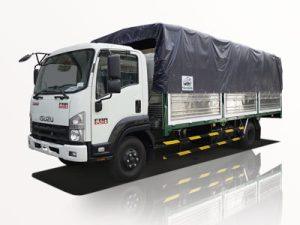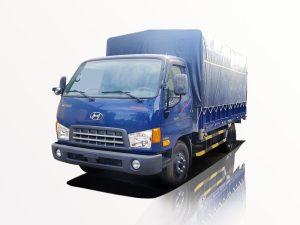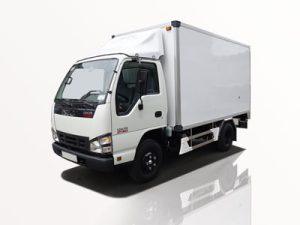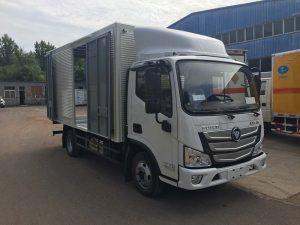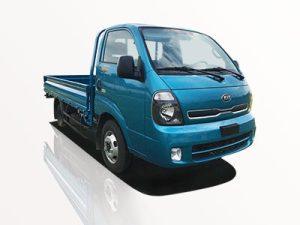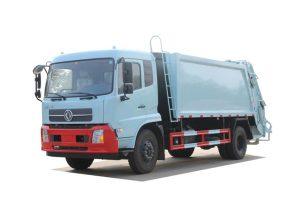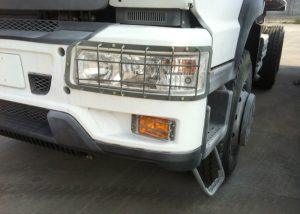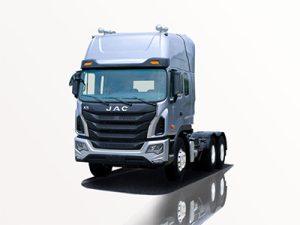Monday to Saturday - 8:00 -17:30
Everything You Need to Know About Freezer Box Vans
As businesses grow and operational needs evolve, the demand for specialized vehicles like freezer box vans increases. These vehicles not only facilitate the transport of temperature-sensitive goods but also play a crucial role in maintaining product quality. This article explains everything you need to know about freezer box vans, from their types and benefits to their uses and maintenance tips.
What is a Freezer Box Van?
A freezer box van, also known as a refrigerated van or cold transit van, is a vehicle designed with an insulated cargo area capable of maintaining low temperatures. These vans are essential for transporting perishable goods such as food, pharmaceuticals, flowers, and more, ensuring that products remain in optimal condition throughout their journey.
Key Features of Freezer Box Vans
- Insulation: High-quality insulation materials keep the internal temperature consistent.
- Refrigeration Unit: Equipped with powerful refrigeration systems to maintain desired temperatures.
- Temperature Control: Advanced temperature monitoring systems allow real-time tracking.
- Durability: Built to withstand the rigors of transport while ensuring the safety of the cargo.
Types of Freezer Box Vans
1. Chilled Vans
Chilled vans are designed to maintain temperatures between 0°C and 4°C and are commonly used for transporting fresh meat, dairy products, and other perishable items that require a cool environment.
2. Freezer Vans
Freezer vans operate in lower temperature ranges, usually between -18°C and -20°C, making them ideal for frozen goods such as ice cream, frozen vegetables, and fish products.
3. Multi-Temperature Vans
Multi-temperature vans have separate compartments that can be adjusted to different temperatures. This versatility allows for transporting both frozen and chilled goods simultaneously, maximizing efficiency for grocery deliveries.
4. Insulated Vans
While not equipped with a refrigeration unit, insulated vans provide a degree of temperature stability and are suitable for transferring goods that do not require strict temperature controls, such as canned or processed items.
Benefits of Using Freezer Box Vans
1. Enhanced Product Safety
Using a freezer box van helps in preserving the quality and safety of temperature-sensitive products, minimizing spoilage and loss.
2. Compliance with Regulations
Food safety regulations require the transportation of perishable goods to adhere to specific temperature standards. Freezer box vans ensure compliance with these regulations, protecting businesses from penalties.
3. Expanded Market Reach
For businesses that deal with perishable products, freezer box vans extend market reach by enabling distribution to a wider geographic area without compromising product quality.
4. Cost-Effectiveness
Investing in a freezer box van can be cost-effective in the long run, as it minimizes product waste and reduces the need for additional refrigeration facilities.
Choosing the Right Freezer Box Van
1. Assess Your Business Needs
Determine what types of products you will be transporting. Understanding the temperature requirements will help in selecting the right vehicle.
2. Consider Size and Capacity
Select a van that offers sufficient cargo space. Make sure to factor in both the total weight of the goods and volume requirements.
3. Evaluate Temperature Range
Ensure that the refrigeration unit can reach and maintain the necessary temperature range for your products.
4. Check Durability and Build Quality
Opt for a van constructed with high-quality materials that can withstand the transport environment, including rough roads and varying weather conditions.
Practical Tips for Operating a Freezer Box Van
1. Regular Maintenance
Conduct regular inspections and maintenance on the refrigeration unit to ensure optimal performance. This includes checking temperature gauges and inspecting seals for leaks.
2. Monitor Temperature
Use temperature monitoring devices to ensure that the cargo area remains within the desired temperature range during transport.
3. Load Smartly
Load products carefully to allow for proper air circulation. Avoid overloading, as this can compromise the refrigeration capabilities.
4. Train Drivers
Ensure that drivers are trained in maintaining temperature controls and are aware of the importance of adhering to proper loading and unloading procedures.
Examples of Industries That Benefit from Freezer Box Vans
1. Food Service Industry
Restaurants, caterers, and food delivery services rely on freezer box vans to deliver fresh and frozen products to their establishments.
2. Pharmaceutical Companies
Companies in the pharmaceutical sector use freezer vans to transport temperature-sensitive medications that require strict temperature controls.
3. Floral Businesses
Florists often utilize these vans to ensure that flowers and plants are kept fresh during transportation to events and customers.
4. Grocery Stores
Supermarkets and grocery chains use multi-temperature vans to transport a variety of perishable items, ensuring product freshness from warehouse to store.
Cost Considerations When Investing in a Freezer Box Van
1. Initial Purchase Price
The purchase price of a new or used freezer box van can vary significantly based on size, features, and condition.
2. Maintenance Costs
Ongoing maintenance and repair costs should be factored into your overall budget to ensure seamless operations.
3. Fuel Efficiency
Consider fuel efficiency as part of your total cost of ownership. Certain models may offer better mileage, leading to long-term savings.
4. Insurance
Insurance rates for freezer box vans may differ from standard vehicles due to their specialized nature. Researching different insurance options is essential to find the best coverage.
Frequently Asked Questions (FAQs)
1. What is the typical temperature range of a freezer box van?
Freezer box vans typically maintain temperatures between -18°C and -20°C, suitable for transporting frozen goods. Chilled vans operate between 0°C and 4°C.
2. How do I clean and maintain a freezer box van?
Cleaning involves using non-toxic cleaning products to sanitize the interior. Regular checks on the refrigeration unit and insulation for issues are essential for maintenance.
3. Can I use a freezer box van for non-food items?
Yes, freezer box vans can transport other temperature-sensitive products, such as pharmaceuticals and floral arrangements. Always check the specific temperature requirements for those items.
4. What is the average lifespan of a freezer box van?
The average lifespan ranges from 10 to 15 years, depending on usage, maintenance, and quality of materials used in construction.
5. Are there regulations regarding transporting food in freezer box vans?
Yes, regulations vary by country and region. Generally, businesses must comply with food safety standards that stipulate temperature ranges during transport.
6. How can I track temperature during transport?
Many modern freezer box vans come equipped with temperature monitoring systems. Additionally, you can use external monitoring devices that send alerts if temperatures fall outside the desired range.


